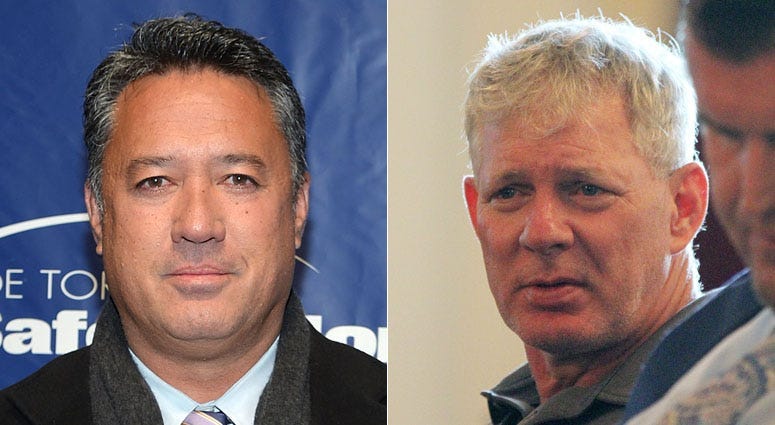
With his partner Keith Hernandez, Ron Darling tops off the best TV color-analyst duo in baseball.
You can't watch a Mets game without learning something. Even as a Yankees fan for 40 years, I marvel at Mex and Ron sermonizing on the nuance of our pastime.
Darling in particular has the kaleidoscope of qualities you want in an athlete, and a man. He's candid and intelligent, serving heaps of knowledge while keeping it humble.
Yet there's something wrong with this Lenny Dykstra deal.
In his new book, "108 Stitches," Darling dishes on an alleged rancid, racist assault by Dykstra, directed at Dennis "Oil Can" Boyd before Game 3 of the 1986 World Series.
Sure, it's hard to defend Dykstra, who, along with Pete Rose, has an epic allergy to rules and laws, adding a yearly stain to his reputation, ranging between bankruptcy and prison.
But for Darling to harpoon Dykstra from 33 years away feels and looks wrong.
First, the supposed target and victim of the racism, Boyd, says he didn't hear it. Second, neither did the handful of '86 Mets who have spoken publicly this week. (Hernandez saw Dykstra yell, but didn't hear the particulars.)
This has the sour scent of opportunism. It feels like something folks not named Darling would do.
Of course, the online think tanks filled with the faux "woke" crowd, will rush to Darling's defense. It's never too late to decry (alleged) bigotry.
Dykstra makes it worse because, well, he's Lenny Dykstra, about as sympathetic as The Situation. So it's easy to jump on the PC bandwagon and call any of us who question this a part of some neocon conspiracy.
That's the problem with groupthink. It lacks guts, logic and objectivity. Why look at the actual event when you can lazily add your cries to the echo chamber?
There's no foolproof way to know if Darling is right. All we can do is take a wide lens to his life, which seems pretty righteous. But if Boyd never heard the invective, was there really an assault, or even an insult?
No matter, to some, if we are in any way sympathetic to Dykstra, we are racists, even if he denies the taunt and his target denies hearing it.
No one wants to spend time defending Dykstra. He's been a full-blown creep for years, burning money and bridges at galling rates.
Yet we are hearing other Mets take his side, such as Doc Gooden, Darryl Strawberry and Kevin Mitchell. You can question their collective character, but at least Lenny has a team behind him.
Where are all the Mets rushing to Darling's side, to either support or even confirm his claim? To date, there are none.
So if Darling is a man of such high-grade character, why is he pitching so low at Dykstra?
Because good people make bad decisions. Perhaps Darling's publisher squeezed this story out of him, under the guise of great sales.
Still, this is on Darling, who is too smart and kind for this kind of attack.
Though this accusation came from a book, it reminds me of the famous Denzel Washington line from "Training Day": "It's not what you know; it's what you can prove."
You can prove Lenny Dykstra is a shady guy. In this case, however, Ron Darling didn't do it.

